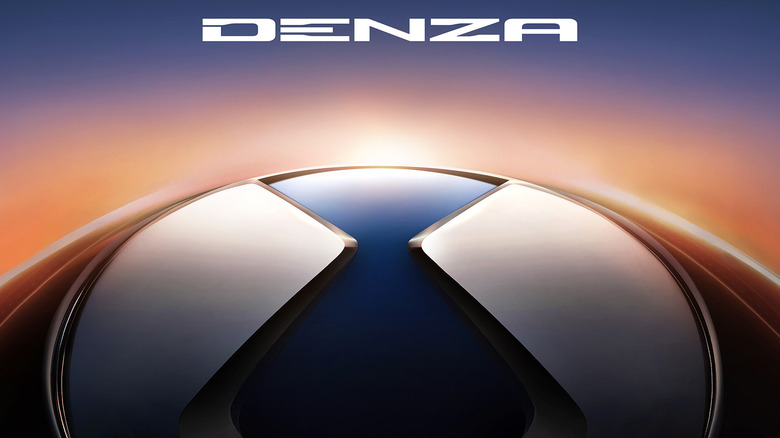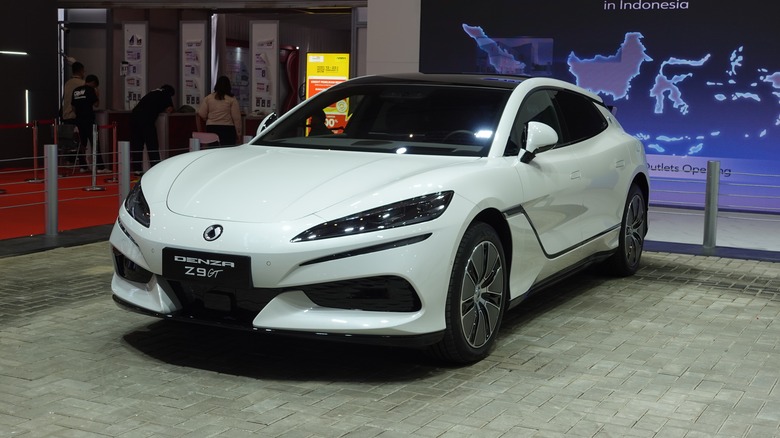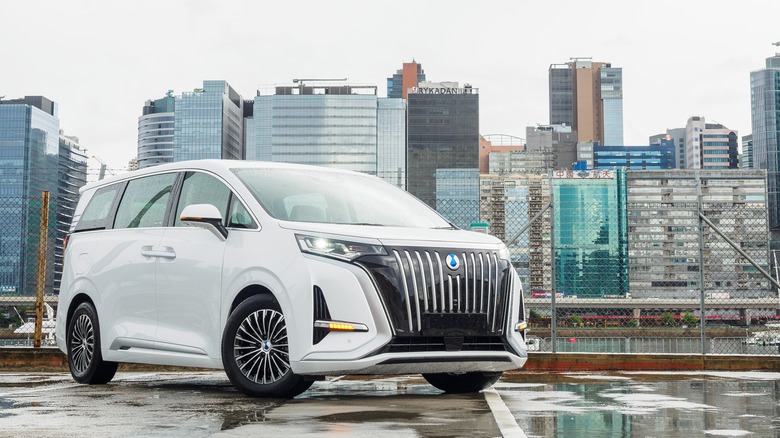This Chinese Car Brand Was Co-Created By Mercedes-Benz (And Is Now Competing With Them Directly)
China's electric vehicle revolution is well underway, and one of its newest and biggest projects comes from an unexpected partnership. In 2010, Stuttgart-based luxury legend Mercedes-Benz and one of the leading Chinese EV brands, BYD, joined forces to create a new high-end brand called Denza. The goal was to use BYD's Tesla-beating battery technology and Mercedes-Benz's luxury DNA to make a high-end electric car that would appeal to Chinese customers.
For a long time, Denza was not well known. Early models never really took off outside of China, more than likely due to lack of brand esteem. But the situation has quietly changed in the last few years. The Mercedes-Benz Group sold its last 10% of Denza shares in July 2024, giving BYD full custody of the brand. The irony? Denza now competes with the same car company that helped start it.
The change from working together to now competing is indicative of a larger global trend. It indicates that China's electric vehicle ecosystem is really growing up. It's becoming less dependent on Western knowledge and more focused on competing against it. BYD stresses that Denza is no longer a brand in training wheels with the release of the sleek new Denza Z9 GT and the sporty N7 SUV.
Denza's evolution is a showcase for China
There was a lot of hope for Denza when it first came out. It was one of the first attempts to sell a Chinese-made luxury electric vehicle, thanks to BYD's battery technology and Mercedes-Benz's design ideas. Sales were slow, though, and the brand didn't get much attention around the world. This changed when BYD, which is now the world's biggest maker of electric vehicles, took advantage of its strengths and began to turn Denza into a high-end brand that could stand on its own.
Mercedes-Benz sold off most of its stake over the years, and by the middle of 2024, it was completely out, giving BYD full control of Denza. The Chinese brand has not faded into obscurity; instead, it has grown. The Denza Z9 GT, the brand's flagship model, is set to hit European roads in the final quarter of 2025. The shooting brake-styled crossover comes adorned with luxurious finishes, eye-catching design, and up to 1,000 hp from either a fully electric, or a PHEV powertrain, the latter of which proves that BYD is Tesla's most dangerous rival. BYD is attempting to change the brand's identity, marketing Denza as a lifestyle choice instead of just a product, in competition with older luxury brands like Mercedes-Benz and Audi.
This momentum has given BYD the confidence to push Denza into Europe, where it's soon to enter markets like Germany and the UK, even if Chinese EVs differ greatly from other markets. A bold move that positions Denza up against its former partner in their own stomping country.
From joint venture to direct rivalry
Denza's move into Europe is more than just a symbolic step forward, it's a warning shot at traditional European carmakers. BYD officially introduced the Denza brand to the European market in April 2025. Denza made mention of the all-electric N7 SUV and the D9 plug-in hybrid minivan, but all the focus was on the flagship Z9 GT, as it will be the first model to hit European streets come the end of the year. Denza promises levels of luxury, reliability, and performance that will rival established European and Japanese brands.
Reuters says that BYD's growth plan for the global market is very aggressive, and the company is on track to make up to 500,000 cars a year outside of China. These are impressive numbers, given that many across the world still have no idea who makes BYD cars. Denza's launch timing couldn't be better, thanks to a growing European EV infrastructure and considerable growth in EV sales across Europe. Mercedes-Benz, which helped shape Denza's early identity, now has to deal with a new, very real competitor that it created itself.
As BYD improves its global presence, from its mass market cars to its high end models like Denza, the auto industry has to confront a new reality. Brands that were once seen as junior partners are now setting their own course and, in some cases, even beating their mentors. Now, all eyes rest on Denza as they prepare for their European launch at the end of the year.


